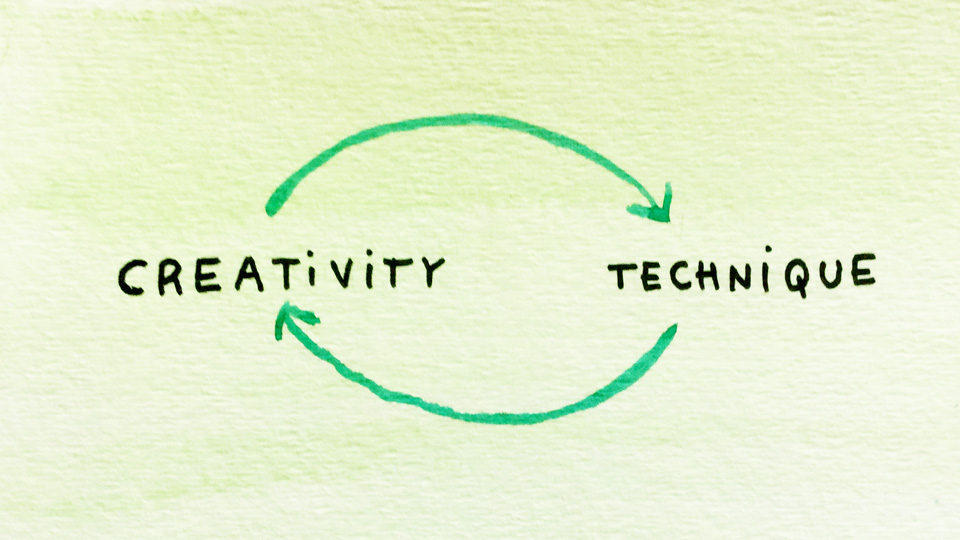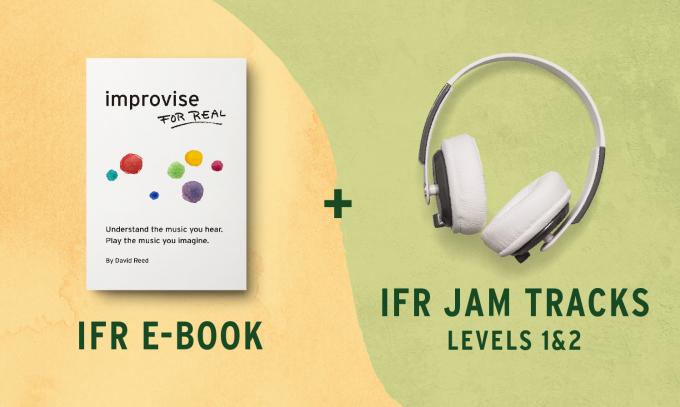Instrument technique and improvisation are two practices that feed one another: we need technical skills to be able to express ourselves creatively, and when we improvise we put into practice and consolidate our technical skills.
Creating music from the imagination is very rewarding and motivating. When we improvise, technique becomes relevant and necessary for us, because it allows us to express our ideas with more clarity. Also, when we improvise we throw ourselves into new and unexpected situations that make us use our technical skills and thus consolidate them. Maud Hickey, composition teacher, makes this very point in her book Outside the Lines: "Composing in an authentic manner - one that is inspired by one’s personal voice and inspiration - will invariably lead to students wanting to learn more technique toward achieving a desired musical end. Providing such freedom will drive the need to know more."
But even though technique helps us to express ourselves creatively, when we improvise we have to forget about it. In order to improvise for real, genuinely from our imagination, we have to throw ourselves in to the void, renounce our ego, forget the here and now. We cannot let what our fingers learn mechanically dictate the product of our creativity. Violin player Stephen Nachmanovitch says in his book Free Play, "To do anything artistically you have to acquire technique, but you create through your technique and not with it." As he points out, technique is the tool and not the end.
At the same time, at every stage of our development we can express ourselves creatively with the tools that we already command. We shouldn't allow our technical limitations to become an excuse for not being creative: we must feel sure of ourselves and play without fear in every step of our musical journey. No matter how “far” we go in music, there will always be more things to discover and master. Our musical development never finishes! For this reason, starting right now we should enjoy every note we play without inhibition.
If you include creative activities in your musical practice, you’ll see how that motivates you to learn technique and master your instrument. The more you enjoy your moments of freedom and creativity, the more you’ll enjoy practicing technique. When we are focused and we have a purpose, studying technique is not a sacrifice but a pleasure. Correspondingly, the more you practice technique, the more you will enjoy improvising because the beauty of your own sound will inspire you.

